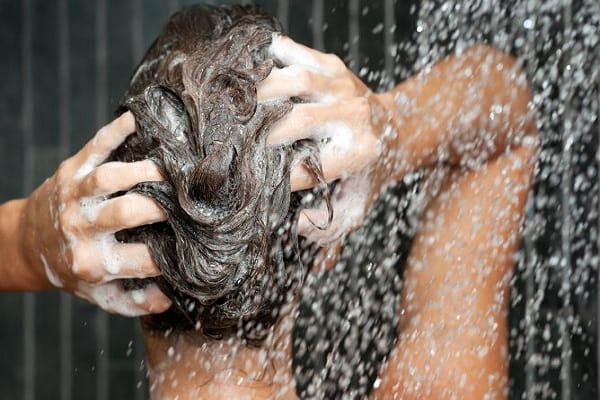Benefits of Aloe Vera on the Skin [Properties Included]
Aloe vera used on the skin is an excellent element that will offer numerous benefits for its care and maintenance.
Many years ago it was discovered that aloe vera in the skin helped to protect it, repair it and improve its appearance when suffering from certain problems, such as dry skin, oily skin or we have sunburned.
We cannot forget that cared-for skin is the best guarantee to be able to wear radiant professional makeup.
![Benefits of Aloe Vera on the Skin [Properties Included] 2 Benefits of Aloe Vera on the Skin [Properties Included]](https://naijaxtremefashion.com/wp-content/uploads/2023/08/benefits-of-aloe-vera-on-the-skin-img_1.jpg)
In this article we are going to see the benefits of aloe vera on the skin, how it is used, and how it can help us with burnt, dry, oily, atopic skin…
What is Aloe Vera
Aloe vera, also known as aloe vera, is a succulent plant with a characteristic appearance, capable of offering very interesting properties for skin care.
The aloe vera plant is native to arid regions of Africa and Asia, and has been used for centuries for medicinal and cosmetic purposes.
In its natural state, the aloe vera that we apply to the skin is a transparent and viscous gel that is found inside its fleshy leaves.
This gel contains many essential nutrients, where we find vitamins, minerals, enzymes and amino acids, which make it very beneficial for the skin.
Aloe vera has become a popular ingredient in moisturizers, lotions, gels, and skin care products due to its hydrating, soothing, and anti-inflammatory properties.
In addition, its ability to soothe sunburns, reduce irritation and improve cell regeneration makes it an element of natural origin to maintain healthy skin.
Aloe vera for the skin
Maintaining healthy skin is essential to our overall appearance and well-being, as well as being necessary to be able to work effectively when putting makeup on a person.
Our skin acts as a protective barrier against the external environment and is constantly exposed to stressors such as pollution, ultraviolet rays from the sun, and chemicals.
Using cosmetics with natural ingredients in our skin care products, such as aloe vera, is a good option to take care of ourselves.
Aloe vera is known for its moisturizing, antioxidant, and anti-inflammatory properties, which help keep skin soft, supple, and rejuvenated, as we’ll see later.
Plus, its ability to soothe irritation and reduce redness is helpful for those with sensitive skin or skin issues like acne.
By opting for cosmetics with natural ingredients like aloe vera we avoid exposure to harsh chemicals that can cause long-term damage to our skin and the environment.
Properties and benefits of aloe vera on the skin
Let’s see the reason why aloe vera is an excellent plant thanks to its skin care properties.
One of the most outstanding properties of aloe vera is its moisturizing capacity.
Its gel acts as a source of moisture for the skin, helping to keep it soft, supple and free from dryness.
This hydration offered by aloe vera is beneficial for people with dry or dehydrated skin, as it restores the natural moisture balance and prevents flaking and irritation.
In addition to its moisturizing power, aloe vera has soothing and anti-inflammatory properties that make it an effective product to soothe irritated skin.
When applied to sunburns, insect bites, or more minor irritations, aloe vera soothes discomfort and reduces redness and inflammation.
Its ability to quickly penetrate the layers of the skin helps speed up the healing process allowing for faster recovery.
Aloe vera is also a natural antioxidant.
Contains vitamins A, C and E, as well as various antioxidant compounds that fight free radicals responsible for premature aging of the skin.
By neutralizing these free radicals, aloe vera helps prevent the formation of wrinkles and fine lines, keeping skin looking youthful and healthy.
Another valuable property of aloe vera is its ability to improve cell regeneration.
Its components stimulate the production of collagen and elastin, essential proteins to maintain the elasticity and firmness of the skin.
Regular use of aloe vera can help improve the appearance of scars as we will see, reduce hyperpigmentation, and smooth uneven skin texture.
Aloe vera is widely used in skin care products such as moisturizers, lotions, gels, and serums due to its multiple benefits.
It is an element suitable for all skin types, including the most sensitive.
Aloe vera for burned skin
Aloe vera has proven to be an excellent remedy for caring for burned skin, whether from sunburns, minor burns, or skin irritations.
Its benefits for burned skin are more than proven in the field of skin care.
When the skin is exposed to the sun for long periods or suffers minor burns, aloe vera gel will give immediate relief.
The cooling and anti-inflammatory nature of aloe vera helps reduce redness, swelling, and burning sensations.
It also acts as a very powerful moisturizer, restoring lost moisture to burned skin and helping to prevent flaking and dryness.
In addition to its soothing and moisturizing properties, aloe vera speeds up the healing process for burned skin.
Its components stimulate cell regeneration and help rebuild damaged tissues.
This will favor a faster recovery and a noticeable reduction of the marks or scars caused by the burn.
As aloe vera gel is a natural product, its application on burned skin is safe, since it does not cause irritation.
Aloe vera for atopic skin
Aloe vera can help people with atopic skin.
Aloe vera offers a number of soothing and nourishing benefits that can help alleviate atopic skin symptoms and improve your overall health.
Atopic skin is characterized by extreme dryness, itching, inflammation and a tendency to develop rashes and eczema.
Aloe vera, thanks to its moisturizing properties, is a good ally to combat dryness that affects people with atopic skin.
By keeping the skin adequately hydrated, aloe vera reduces irritation thus alleviating the discomfort associated with atopic skin.
In addition, as aloe vera has anti-inflammatory and soothing properties, when applied to affected skin it helps to reduce inflammation and redness, which helps soothe atopic skin and prevent breakouts.
Aloe vera for oily skin
Aloe vera is a good product for people with oily skin, as it offers a number of benefits that can help balance and improve the condition of this type of skin.
Oily skin tends to produce excess sebum, which can lead to clogged pores, acne, and an unwanted shiny appearance.
One of the main benefits of aloe vera for oily skin is its ability to control sebum production.
Aloe vera gel has astringent properties that help reduce the amount of oil and shine on the skin, resulting in a more matte and balanced appearance.
Aloe vera is also a natural humectant, which means it can hydrate the skin without adding extra oil, as some creams can.
By offering balanced hydration, it helps prevent oily skin from producing excess sebum in response to dehydration.
Aloe vera for dry skin
Aloe vera can also benefit dry skin.
These skins lack moisture and tend to feel tight, rough and dehydrated.
In this sense, aloe vera offers a series of advantages that help combat these problems and improve skin health.
One of the main benefits of aloe vera for dry skin is its moisturizing ability.
Aloe vera gel is rich in water and natural moisturizing compounds that absorb quickly into the skin, providing deep, long-lasting hydration.
By keeping skin properly hydrated, aloe vera helps restore the skin barrier, preventing moisture loss and preventing dryness and flaking.
Also, applying the gel to dry skin relieves irritation and a feeling of tightness.
This makes aloe vera an ideal choice for people with dry and sensitive skin, as it provides immediate and gentle relief.
Aloe vera is also a good cell regenerator, and its bioactive components stimulate the production of collagen, improving the elasticity and firmness of dry skin.
Aloe vera for acne-prone skin
Aloe vera is a strong ally in the care of acne-prone skin, as it offers a number of benefits that can help fight and improve acne effectively.
Acne is a common skin problem characterized by clogged pores and inflammation, leading to the appearance of pimples, blackheads, and breakouts.
One of the main benefits of aloe vera for acne skin is its ability to reduce inflammation and soothe irritation.
Aloe vera gel has anti-inflammatory properties that can help reduce redness and swelling associated with acne, providing immediate relief.
Additionally, aloe vera is known for its antibacterial properties, making it an effective agent for fighting acne-causing bacteria.
Regular application can help clear pores and prevent future breakouts, promoting clearer, blemish-free skin.
Aloe vera is also a good moisturizer as we have seen, as it hydrates the skin without clogging the pores or increasing sebum production.
Keeping the skin properly hydrated is crucial for acne care, as dehydration can worsen the situation and lead to increased oil production.
Does aloe vera whiten the skin?
Aloe vera is not a skin bleaching agent.
Although aloe vera can help improve the appearance of skin and lighten certain dark spots due to its regenerative and soothing properties, it does not have the ability to noticeably change skin tone.
Aloe vera will not significantly whiten the skin or permanently alter the natural color of the face.
Any lightening effect that aloe vera can generate is mild and temporary.
Is aloe vera good for the skin?
Yes, aloe vera is excellent for the skin as it offers a wide range of benefits as we have seen.
Its gel contains moisturizing, anti-inflammatory and antioxidant properties that nourish the skin and protect it against damage caused by free radicals.
Aloe vera also calms and soothes irritations, reducing redness and inflammation.
In addition, its regenerative capacity improves elasticity and helps heal wounds and minor burns.
And very importantly, aloe vera is suitable for all skin types, including dry, oily, or sensitive skin.
How to use Aloe Vera
Aloe vera is a natural ingredient that can be used in various ways on the skin to reap its benefits.
Here are the main ways to use aloe vera for skin care:
Pure aloe vera gel
The simplest and most effective way to use aloe vera is to apply the gel directly to the skin.
Fresh gel should be extracted from an aloe vera leaf and applied to clean, dry skin, massaging gently until fully absorbed.
Face moisturizer
It is a mixture of aloe vera gel with a few drops of oil, such as jojoba oil or sweet almond oil.
It should be applied to the skin after cleansing, as a light, non-greasy facial moisturizer.
Localized treatment
To calm irritations or acne breakouts. Apply a small amount of aloe vera gel directly to the affected area.
Its anti-inflammatory action will help reduce redness and swelling.
After sun
After sun exposure, apply aloe vera gel to affected areas to soothe and cool the skin, helping to soothe sunburn.
Aloe vera for scars
Aloe vera is well known for its effectiveness in treating scars.
Thanks to its regenerative and soothing properties, aloe vera gel can help improve the appearance of scars and promote their healing process.
By applying aloe vera gel to damaged skin, it works by stimulating the production of collagen and elastin, which promotes cell regeneration and improves skin texture.
Additionally, aloe vera helps reduce inflammation and redness of scars, allowing for faster recovery and a smoother, more even appearance.
Its regular application can be beneficial for new and old scars, making aloe vera a natural and effective option for scarred skin care.
It should be taken into account that in very deep scars it may not be appropriate to apply it.
Contraindications of aloe vera for the skin
Although aloe vera is well known for its beneficial properties for the skin, it is also important to consider some contraindications and precautions before using it.
First, some people may be allergic to aloe vera, which can lead to skin reactions such as redness, itching, or rashes.
It is essential to patch test a small area of skin before applying aloe vera to large areas of the body.
Also, aloe vera should not be ingested, as it can have laxative effects and cause stomach upset.
Likewise, you should avoid applying aloe vera to deep wounds, severe burns, or open cuts, as it could delay the healing process.
Pregnant or lactating women should also exercise caution with the use of aloe vera.
It is always advisable to consult a doctor before using it during pregnancy or lactation.






![How to Make Perfume in Nigeria 2022 [Step-By-Step Guide] 8 How to Make Perfume in Nigeria [Step-By-Step Guide]](https://naijaxtremefashion.com/wp-content/uploads/2022/05/how-to-make-perfume-in-nigeria-img_1-min.jpg)
Can’t remember my darn password for a777gamelogin. Anyone else dealing with this? Wish they had an easier reset process. Ugh!